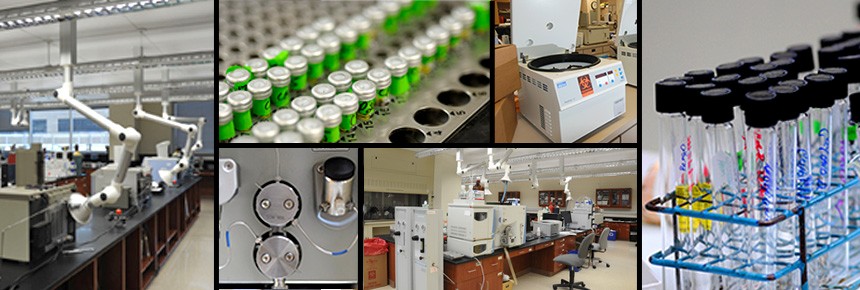Chemistry and Toxicology Laboratory

Forensic Chemistry
Forensic chemists analyze substances submitted by pathologists and other agencies. Drug types received commonly range from clandestine chemical substances to therapeutic or prescribed medications. Cocaine, heroin, and methamphetamine, all drugs of abuse, represent the most common products received for chemical assay. Law enforcement agencies are faced daily with the challenge of identifying drugs found subsequent to an arrest or search warrant execution.
Forensic Toxicology
Forensic toxicological services were established at the Medical Examiner’s Office in 1983. Subsequently, the toxicology laboratory has expanded to include sophisticated mass spectrometry, (MS) techniques, including: time-of-flight, triple-quadrupole, and ion trap. In addition, gas chromatography and immunoassay techniques are utilized. The toxicology laboratory provides drug testing to assist medical examiners in determining the cause and manner of death by isolating, identifying and determining the concentration of compounds in collected specimens. Additionally, the forensic toxicology laboratory analyzes specimens for law enforcement agencies to assist in DWI and drug-facilitated crimes investigations.


 TARRANT COUNTY, TX
TARRANT COUNTY, TX

 Medical Examiner
Medical Examiner